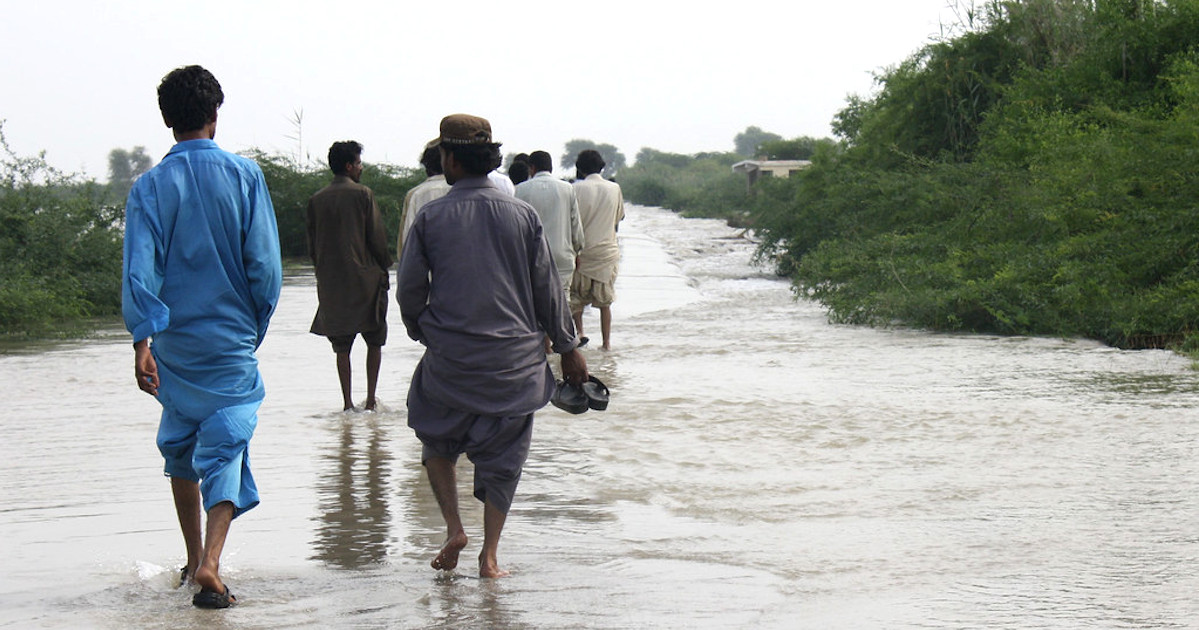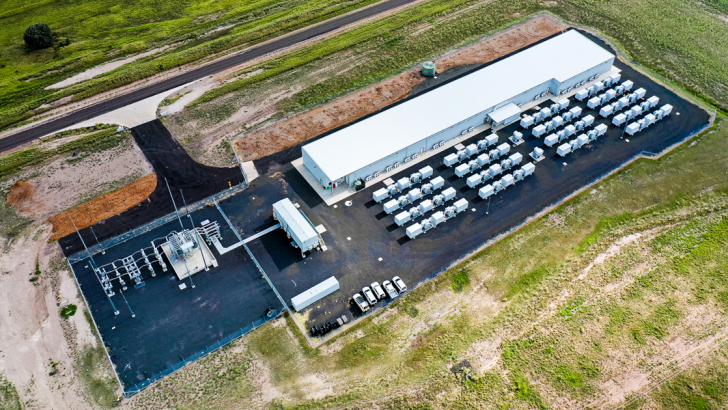COP28: Loss and damage fund approved, but too hastily

It was among the most expected outcomes of this meeting and was achieved quite rapidly, on November 30th, the opening day at COP28 in Dubai. After 30 years of calls for action and battles from the Global South, the fund for addressing losses and damages has been operationalised just hours into the climate conference led by the United Arab Emirates (UAE), which will contribute $100 million to the fund.
“Usually, important decisions are chewed over, digested and rechewed for days,” wrote Jacopo Bencini, policy advisor for European and multilateral climate policies who is following COP28 for the Italian Climate Network. “This sudden leap is all political, well-managed by the UAE in their determination to speed up the process, yet it leaves high and dry those hoping for at least a partial revision of that text.”
On the same day, contributions for another $225 million were declared by the European Union, $100 million from Germany, approximately $75 million from the United Kingdom, $10 million from Japan, and a mere $17.5 million from the United States. “Yet another confirmation of financial disengagement from the United States,” Bencini emphasised.
On the eve of the Arab COP, the world’s attention was focused on the contradictions of a climate negotiations led by a petrostate, whose expected outcome should be the phase-out of fossil fuels. The BBC has also disclosed confidential documents suggesting that the Emirates’ presidency was working to strengthen its position in the oil market.
Through a diplomatic turn of events, almost theatrical, Sultan Al-Jaber, president of this climate conference of the parties and already at the centre of controversies due to his conflicts of interest (he is the chief of Adnoc, the UAE’s national oil company), redirected the spotlight towards another critical theme of this year’s COP. The activation of the loss and damage fund was anticipated but still not given for granted; thus, this is an important achievement in the fight against climate change. However, the applause from the assembly and observers should and cannot overshadow the voices of those who emphasise the problematic aspects already raised concerning the functioning of the fund, which have not been addressed after the approval of November 30th.
There are several critical aspects: the role of the World Bank in managing the fund and the decision to make national investments in the fund voluntary rather than mandatory; the lack of recognition of the principle of climate justice; the absence of a specified funding target; and the challenges in keeping promises concerning climate finance. But let us go one step at a time.
$100 billion by 2030
In sum, the first financial commitments declared on November 30th amounted to around $550 million. The next day, France pledged another $100 million and the same amount was contributed by Italy. However, Italy itself, through Tecnimont and Saipem (part of the Eni group) had just signed a $17 billion agreement with Adnoc on October 6th, of which $13 billion falls under the responsibility of the Italian corporations, for the exploitation of two offshore gas fields (Hail and Ghasha). “December 1st, 2023: Italy donates $100 million for the damages caused by that contract,” wrote environmental journalist Ferdinando Cotugno.
BREAKING: Italy announces Є100 million commitment to Loss and Damage to support transformational climate progress at COP28 and support climate resilience for vulnerable communities.
— COP28 UAE (@COP28_UAE) December 2, 2023
We encourage global leaders to accelerate action, raise collective ambition, and close gaps to… pic.twitter.com/NfK1xCG2Qd
A 2019 study cited in a document released by the European Parliament states that the funds required to address losses and damages caused by climate change could range between $290 and $580 billion per year by 2030. Another analysis from 2022, however, estimates that for the same purpose the amount needed would range between $150 and $300 billion per year.
Earlier this year, a group of representatives from developing countries had urged for reaching the target of at least $100 billion annually. However, this and other financial goals are not included in the document signed on the first day of COP28. The funds collected by the Emirate presidency are still far from sufficient for truly addressing the issue.
Disappointments of climate finance
An official definition of loss & damage may not exist, but there is an informal consensus in understanding the term as the adverse outcomes of climate change that cannot be addressed anymore by mitigation (lowering emissions in order to avoid further global warming) and adaptation (actions aimed at coping with an already changed climate).
Implementing these mitigation and adaptation measures in developing countries is crucial for climate finance. Until now, however, this has been a story of unfulfilled promises and unrealised goals. At COP15 in Copenhagen in 2009, industrialised countries had pledged to provide $100 billion annually to low-income countries by 2020.
In 2021, just under $90 billion had been collected, falling short of the target set 12 years earlier (we now hope to achieve for the first time in 2023).
A little over $21 billion was destined to adaptation, a figure that decreased by nearly 15% compared to the year before, as reported by the OECD. According to the Adaptation Gap Report 2023 released by UNEP (United Nations Environment Programme), the actual costs for adaptation would be 10 to 18 times higher, ranging from $200 to $400 billion annually from now to the end of the decade. These costs are expected to further escalate by mid-century. Unfortunately, it is reasonable to believe that, without further pressures, it many take too much time before these funds reach the communities that most need them.
Climate justice
All too often, even loss and damage measures are viewed as a specific form of adaptation. However, as Ugandan climate activist Vanessa Nakate has often stressed, it is impossible to adapt to the loss of family members or places erased by a flood. And it becomes even more challenging considering that the most vulnerable to such losses are the ones who contributed the least to the increased frequency and intensity of those extreme weather events that oppress them.
My thoughts on the Loss and Damage fund agreed yesterday at #COP28 pic.twitter.com/2kYIaRj5bq
— Vanessa Nakate (@vanessa_vash) December 1, 2023
Indeed, responsibility for climate change lies almost entirely with those countries that, from the Industrial revolution onwards, have benefited from fossil fuel consumption, disproportionately distributing the environmental rather than sharing the wealth generated by their burning.
North America, Europe, and Asia account for roughly one third each (over 90% of the total) of historical emissions, whereas the entire African continent has contributed only 3%. These indisputable data underpin the principle of climate justice and common but differentiated responsibilities, which formed the basis of the request for establishing a financial mechanism to address losses and damages caused by climate change.
Last year in Sharm el Sheikh Global South countries had created a strong alliance, thus obtaining the historic inclusion of the loss and damage fund in the final document of COP27 for the first time. Throughout the following year, the Transitional Committee (an ad hoc committee, appointed during the COP) worked on the details to operationalise the fund and aimed to present a document for approval at COP28.
The document was the outcome of a committee meeting held between November 3rd and 4th, 2023, in Abu Dhabi, and on that occasion some representatives of developing countries expressed deep dissatisfaction.
Indeed, the line promoted by the United States prevailed: they managed to make the contributions to the fund voluntary instead of mandatory. Moreover, it was decided that the fund would be managed by the World Bank, whose president is appointed by the United States. The previous one, David Malpass, had resigned in February 2023 following denialist declarations regarding climate change.
During COP27, the Bridgetown initiative was also presented, named after the capital of Barbados, one of the many small islands that risk to be submerged due to rising sea levels. Prime Minister Mia Mottley had called for a reform of the major global financial institutions, like the International Monetary Funs and the World Bank, to make them more suited to address the challenges of the XXI century, particularly climate change.
With the approval on the first day of COP28, it seems that no reference was added to the principle of climate justice. The voluntary nature of funding contributions has not been questioned, and the leading role of the World Bank has been confirmed for at least the next four years.
The United States’ decision to contribute a very small amount to the fund with, considering its primacy in historical emissions, looks like a refusal of the logic of climate justice. Vice-president Kamala Harris announced the allocation of another $3 billion for a different fund aimed at supporting developing countries, as if to say: “We decide on the contributions, based on the principles we establish.”
It would be a mistake to view the mere establishment of the loss and damage fund as a historic achievement. History will be made only when the funds required for addressing loss and damages are spent effectively.
If Al-Jaber’s aim was to shift the attention from the reduction of oil, gas and coal consumption, he succeeded, but only for a few hours. A draft of the final document, which will be discussed in Dubai in the next days, includes a direct reference to the phaseout/phasedown of fossil fuels for the first time. We’ll see if this wording will navigate through the final agreement’s approval or it will once again be vetoed by some countries.
? ‘Back into caves’: #Cop28 president dismisses phase-out of fossil fuels
— Damian Carrington (@dpcarrington) December 3, 2023
- Exclusive: UAE’s Sultan Al Jaber says there is ‘no science’ behind demands for phase-out of coal, oil and gas#ClimateCrisis #FossilFuels
Story by me and @ben_stockton https://t.co/fuUkOm5Udl
Meanwhile, an article from The Guardian revealed that on November 21st, Al-Jaber has claimed that there is no science stating that it is necessary to abandon fossil fuels to limit climate change to 1,5°C, and that doing so would “take the world back into caves.” The inadequacy of the CEO of the national oil company of Abu Dhabi to hold the role of COP28 president is becoming increasingly apparent.
This article was translated into English by Sofia Belardinelli. The original version of this article is available here.
ALSO READ:









